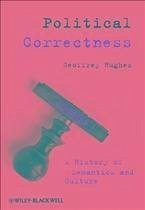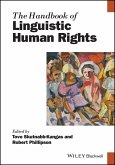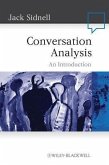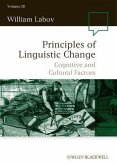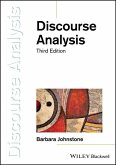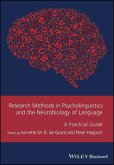Dieser Download kann aus rechtlichen Gründen nur mit Rechnungsadresse in A, B, BG, CY, CZ, D, DK, EW, E, FIN, F, GR, HR, H, IRL, I, LT, L, LR, M, NL, PL, P, R, S, SLO, SK ausgeliefert werden.
"Some books are written to be read, and other books are referenceworks. Political Correctness: A History of Semantics andCulture is unusual in that it is both jam-packed with detailedinformation and yet makes for a good read. Everyone should readthis book and also keep it on the shelf as an excellent referencework. This informative and well written book covers more than justthe notion of political correctness (PC) in the narrowsense. It encompasses far more than the problem of increased, PCkinds of concerns, as discussed in Part I, Political Correctnessand Its Origins." (PsycCritiques, August 2010)
"Hughes ultimately comes down against artificiality, suggestingthat political correctness is a form of social engineering thatarises from good intentions coupled with Puritanism. A useful bookfor anyone interested in language and culture." (CHOICE, June2010)
"Hughes' book provides a wide-ranging examination of aphenomenon that has had an immense influence on our culture, forboth good and ill. Political Correctness: A History of Semanticsand Culture is an entertaining, thought-provoking foray into aninteresting and important area. Hughes focuses mainly on theeffect of P.C. in contemporary Britain, America and South Africa,but he looks at earlier historical periods (such as theReformation) too. This is the best book written on thesubject, and that by some distance. It is an essential study,rigorous and critical and absolutely indispensable."(Compulsive Reader, April 2010)
"Focusing on the historical, semantic, and culturalaspects of political correctness, this brilliant and unique workwill intrigue anyone interested in this ongoing debate." (Lavoisier, November 2009)
"One must maintain a sense of humour when entering this arena,where voices of the global cultural elite sometimes presentthemselves as brave and daring for taking potshots at the sidelinedor powerless. An emeritus 'historian of the English language',Hughes knows a lot about dictionaries of every stripe, whetherorthodox or slang. He can provide the history of innumerable words,enabling readers to follow semantic changes, neologisms and otherevolutions in the 'word field.'" (Times HigherEducation, November 2009)"Geoffrey Hughes has brought together with great panache the verymany manifestations of political correctness, both absurd andvicious, and shown how they express a single collective mind-set.His book establishes beyond doubt that there is such a phenomenon,that it has become dominant in our culture, and that it representsa growing tendency to censor public debate and to prevent peoplefrom questioning orthodoxies which we all know to be false."
--Roger Scruton, American Enterprise Institute
"What a joy this book is! Hughes´ study traces, withunflagging zest, the modern history of PC.Sumptuous in data, injudgment precise, this is the latest and fullest of Hughes'series on the social history of language."
--Walter Nash, Professor Emeritus, University ofNottingham

